-
Building on our roots in performing on-the-ground due diligence, we visited Origin Agritech Limited (NASDAQ:SEED) facilities and discovered that the company is already growing and testing GMO crops, a fact that most investors are likely not aware of.
-
Our researcher also visited a hybrid seed testing facility operated by the Chinese government to get a broader understanding of the market.
-
Our interviews with agriculture distributors in China revealed that while investors are focused on SEED’s potential role in GMO, the company’s hybrid seed business is of high quality and is poised to make a comeback, confirming statements made by the company in a recent investor presentation
Source: Q4 Investor Summit)
For context on our involvement in researching Chinese companies, after being bullish on several U.S. listed China Based stocks (ChinaHybrids), we became bearish on the entire universe between 2010 and 2014, publishing portfolio protection research on dozens of ChinaHybrids and 12 deep-dive reports on companies that were eventually delisted. Our research was supported by on-the-ground due diligence.
Now, we are reversing the script to substantiate a long position in Origin Agritech Limited (NASDAQ:SEED) by repurposing the kind of on-the-ground research process we used 10 years ago to justify shorting ChinaHybrids. Although we think SEED is a very speculative investment, we think it can trade at over $40.00 in the near future.
Summary
-
A new policy framework was just announced by the Chinese government eliminating time consuming hurdles for agritech companies like SEED to receive certificates needed to manufacture and market Genetically Modified Organism (GMO) seeds in China.
-
SEED was founded in 1997 and went public on the U.S. stock market through a reverse merger around 16 years ago, but only now does it seem that the company is in a position to hit an all-important milestone investors have been waiting for since 2009.
-
We think this milestone will be the catalyst to increase SEED’s price by multiples of where it currently trades (~$10/share), almost immediately after the milestone is achieved.
-
At one time, SEED was an agricultural company generating over $70 million from selling hybrid seeds in China and in 2009 became a promising play on China’s desire to allow domestic companies to produce and market GMO seeds.
-
The stock more than doubled in 2009 after its research partner using SEED’s IP received the first ever certificate that would have allowed it to continue testing GMO seeds. The testing would have been for the purpose of eventually receiving a certificate to be permitted to produce GMO seeds. However, after China backed off its immediate plans to adopt a domestic GMO policy, the stock retraced to near $20 per share by the end of 2011, and the business had to be reorganized to stay afloat.
-
SEED never gave up on advancing its GMO IPs and has developed the only non-government owned germplasm corn bank. Why is this important? Germplasm is the launching pad from where GMO traits are born. That means that not only can SEED create its own GMO corn traits, but big ag tech players and research institutes can licence SEED’s IP to create their own GMO traits. In essence, think of SEED as an ag tech GMO platform.
-
SEED was able to regroup in 2016 when China set up a four-year plan with the goal of issuing GMO certifications to domestic companies to produce and market their seeds in China - In other words, going GMO-Positive.
-
In 2020, it seemed China was about to officially go GMO-positive. But 2020 came and went and SEED did not achieve any certifications, even as the Chinese government seemed to continue to support a GMO-Positive position. However, its research partners have received certifications giving us confidence that SEED will eventually play a lead, if not the leading role in China's GMO-Positive initiatives.
-
Now, a new change in China's GMO policy that just occured puts SEED in a unique position to receive the much needed certifications and restart its revenue growth.
-
The market seems to be ignoring this and is writing off SEED as yet another Chinese company without much of a future. We believe otherwise and see significant upside if/once the company receives its certifications. We think this event is right around the corner.
As you read this report, understand that the bull case for SEED centers around the following themes that will be referenced throughout the report:
-
We believe China will go GMO-positive
-
SEED’s corn germplasm bank is a huge deal. So, STOP focusing so much on when SEED will receive all its GMO-positive certificates and more on the incredibe moatish IP it possesses.
-
If you are trying to figure out how to value SEED vs. comps in China, consider that Dabeinong, a leading feed agriculture company in China, recently spun off its GMO division (that has no germplasm bank) at a $700 million valuation, or 14x SEED’s market cap.
Source: Q4 Investor Summit)
-
SEED has already been testing certain GMO traits for preparation for receiving production certificates, even though this intel is not so obvious, aka we have amassed information arbitrage.
-
Should be able to begin producing and marketing GMO as soon as (if) it receives its GMO-Positive certificates.
-
SEED has relationships or licensing agreements with leaders in the agriculture universe, where it will receive licensing fees and will share in the economic interests from these relationships to monetize their respective GMO IPs.
-
International Relationships:
-
Agricultural companies outside China that want to participate in China's GMO initiatives will likely have to partner with domestic companies.
-
Dupont Pioneer (DP) - SEED already has licensing agreements with DP and KWS in place to incorporate GMO traits in the last stages of approval into their seeds.
(Source: Q4 Investor Summit)
-
Well, we all know who Dupont is! It's also worth noting that Chairman Han used to work at Dupont Pioneer. KWS - Fourth largest seed producer worldwide based on sales in agricultural crop.
-
Leading research institutes in China-
-
The Chinese Academy of Agricultural Sciences (CAAS) - The Chinese national, agricultural scientific research organization, established in 1957.
-
The Biotechnology Research Institute (BRI) of (CAAS) was founded in 1986 and it is the only public, non-profit institution focusing on the frontiers of both basic and applied research of agro-biotechnology in China
-
Industry leading companies in China
One last thing to keep in mind is that this is our first stage of on the ground due diligence on SEED and that we plan to continue to perform more DD on various aspects of their manufacturing, marketing, partner and distribution infrastructure.
Introduction
We believe Origin Agritech Limited (NASDAQ:SEED) is a perfect way U.S. investors can profit from China’s need to address its looming food crisis. We agree with an analyst report we will reference later that pegs SEED’s near term value at well over $40.00 if and when China goes GMO-positive and issues necessary certificates to SEED, enabling it to begin monetizing its rich germplasm corn bank in China, the only such non-government owned germplasm corn bank in China.
Quote from our investigator's interview with a sales associate at our on-site visit to one of SEED’s test facilities:
“Do you think you will be ready to plant and produce GMO crops at scale by the next planting season in early 2022?
Answer: We can start production at scale immediately.”
Big News Misunderstood
Just a few days ago, the Chinese Central Government made an important policy change, reducing the timeline and steps for domestic agricultural companies in the GMO race to receive GMO production certificates so they can start producing and selling GMO seeds. That has us believing that China wants to go GMO-positive as soon as possible. We will dive into this policy change later in the report, but here is what you need to know. Late Last Sunday, Yahoo reported on a Reuters news story (China proposes new rules to ease GMO approvals), that touched upon this policy change, actually quoting SEED's Founder, CEO and Chairman, Han Gengchen:
"I believe that this is a significant step for GMO commercialisation," said Han Gengchen, chairman of Origin Agritech Ltd , the first Chinese company to develop GM corn crops. It clarifies the procedures for GMO variety approvals and simplifies the process. It will accelerate GMO corn commercial production."
Surprisingly, the stock has had a somewhat muted reaction to this news, which we think is arguably the strongest piece of GMO news to come out of China since we turned bullish on the stock in February, 2019 based on China’s urgency to go GMO-positive. So what happened?
Here is a confusing quote from the article:
“Among the many proposed changes, a GM trait applied to an already approved hybrid would only need to undergo a one-year production trial before receiving approval, rather than going through the full round of trials needed for new varieties.”
The first piece of confusion stems from the reference of “approved hybrid.” If you do not know that SEED already owns a rich portfolio of approved hybrid seed intellectual property (IP - germplasm hybrid corn bank), you might be questioning if SEED has an inventory of corn hybrid IP to which they can apply GMO.
The bigger issue with this quote is that the Yahoo article appeared to put a damper on investor expectations that SEED will be getting production certificates any time soon, having to wait at least another year, since it does not have any “official” GMO biosafety or variety certificates.
|
Well, rest assured that our research, combined with our on-the-ground due diligence test site visits, show that SEED has been in a “variety testing phase” for some of its GMO traits since 2019. The government has been kind of quiet about this because we think they wanted to tread lightly about China’s GMO-positive initiatives as they gather support from the media and citizens on the subject, which is generally now the case.
Until this new policy was in place, the variety testing process, which runs about two years, was needed before applying for a production certificate. Well, now the variety test phase is no longer required. Even better, our on-the-ground research shows that it looks like SEED has already been testing certain varieties for a long enough period of time to encompass the new standard and to receive related production certificates, without having to wait a "year."
|
We Are Very Bullish
We first issued our bullish opinion on SEED to GeoInvesting premium subscribers in February 2019 at around $6.50. Since then, holding onto SEED has been an extremely excruciating experience. The stock touched a high of $28.28 on February 22, 2021 and now sits at around $10.00. So, what happened and why are we more bullish than ever?
The case for China going GMO-Positive is really simple:
-
China already imports a significant amount of GMO corn and soybean from the U.S. and Brazil for animal feed!
-
In 2020, China bought 11.3 million tonnes of corn, exceeding the annual quota, set at 7.2 million tonnes, for the first time. It also imported a record 8.38 million tonnes of wheat. The quota for that crop was set at 9.64 million tonnes.
-
“China's soybean imports have also been tracking higher, reaching a record 98.5 million metric tons in 2020 and are set to top 103 million metric tons this marketing year, according to the USDA.”
-
“In 2018, GMO soybeans made up 94% of all soybeans planted, GMO cotton made up 94% of all cotton planted, and 92% of corn planted was GMO corn.”
-
“China allows imports of GMO crops for animal feed processing only and they cannot be used as seeds.”
-
Unfavorable environmental conditions and insect infestations are killing crops
-
China is running out of qualifying land to grow crops
-
COVID-19 has created food supply chain issues and runaway inflation on foods that China imports
-
GMO can increase yields by 25%.
-
Unlike in the past, China's media and citizens are generally not opposing a GMO positive initiative
Our research, which now includes on-the-ground due diligence in China, supports our bullish stance on SEED and the conclusion that shares of SEED are about to take off, despite some of the frustration of waiting for this moment to arrive. Anyways, who said investing was for overnight gains?
Please read on..
Another Busted China Reverse Merger
Completing its reverse merger in 2005, SEED is one of the left-for-dead remnants of the toxic China reverse merger days between 2009 and 2014. At one time, Origin Agritech was a leading agricultural company in China, sporting revenues of $70 to $80 million. On November 23 2009, the stock skyrocketed from $52.10 to $104.50 on the first trading day after its research institute partner, BRI, (using SEED’s IP), received a biosafety certificate (quote below) for a corn GMO trait, putting SEED in position as the first domestic PRC company to develop and market GMO seeds used for growing crops for animal feed.
“Report Highlights: On November 21, 2009, Beijing-based Origin Agritech became the first company to receive deregulated status for a corn variety modified using biotechnology for planting in China. Confirmed by China’s Ministry of Agriculture, Origin’s phytase corn product recently received the final biosafety certificate that permits its domestic sale and marketing. This ground-breaking authorization may foreshadow a smoother regulatory process for future biotech food crops for planting in China.”
However, by the end of 2011, the stock retraced to near $20 as China shelved its GMO plans after public and media opposition to China going “GMO-positive,” a negative sentiment that is no longer the majority position in China.
To make matters worse, SEED’s hybrid seed business went into a multiyear tailspin due to competitive market conditions, largely brought on by counterfeit hybrid seed activities. Overall, its effort to grow other parts of its business and new business ventures failed to gain traction. It eventually sold these businesses in order to survive, while it retained its large GMO IP portfolio.
Hope Returns, or Does It?
In 2016, China set a 4 year plan to go GMO-positive, a move that investors, including us, believed would be transformational for SEED and put the company back on the map.
Well, 2020 has come and gone and SEED has not received any certificates that it had expected to receive, and China as a whole is still not allowing domestic companies to produce and market GMO seeds. It is worth noting that SEED’s research institute partner, The Biology Research Institute(BRI), received a biosafety certificate for a soybean GMO trait on July 15, 2020. However, this is just not enough this time around. Without a coveted production permit, the safety cert means nothing to investors.
After a brief pump heading into 2021, the stock plummeted and it looked like 2009 all over again.
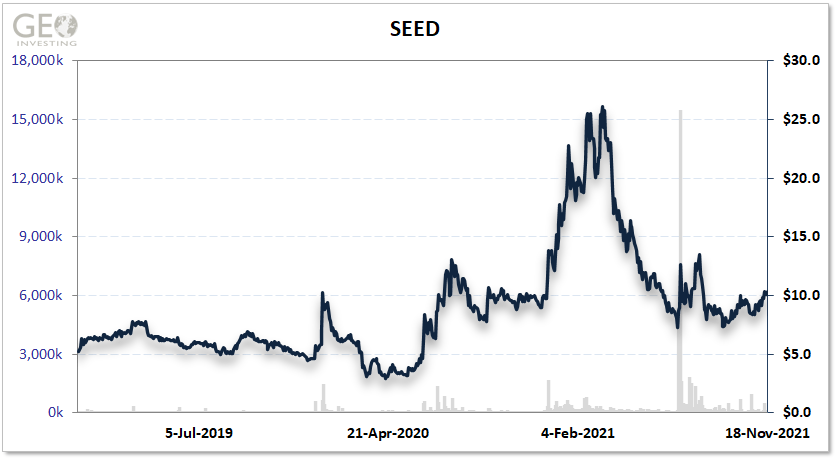
Although China has taken giant steps forward to going GMO-positive, their government has not helped matters by failing to officially go GMO-positive on a timetable that investors expected. But we have to keep in mind that China doesn't want to make the same mistake it made in 2009. So, it's been taking its time, spending the last several years getting the citizens of China and the Chinese media on board to support the country's desire to go GMO-positive. COVID-19 has also played a part in delaying the process. Making matters worse, the entire U.S. listed China space has gotten pummeled over the last 9 months, which we believe may have resulted in forced selling of SEED’s stock by one of its institutional investors that appears to have subsided.
(Source: Q4 Investor Summit)
Still, in our opinion, management has not done a great job helping investors navigate what appears to be an uncertain GMO-positive environment from the perspective of U.S. investors.
Recently, we expressed frustration over the manner in which SEED's management has conveyed its potential leading position as part of China’s goal to go GMO-positive. We also talked about the lack of clarity surrounding what some of its GMO related press releases mean, as well as the company’s misunderstanding of capital markets (filed a shelf prematurely after clearly communicating it did not need to raise money).
We are also annoyed that the company’s CEO and Board have not stepped up to the plate to buy stock on the open market after the sharp pullback in shares.
Regardless, we understand the opportunity. We think shares are severely undervalued and are finally set to move dramatically higher.
GMO-Positive Enters The Bottom of The Ninth Inning
During last Friday’s trading session, SEED issued a tweet that we believe has revealed an incredible policy development in China’s GMO-positive trajectory:
Big development for the GMO seed industry in China. The MOA just put out a policy update on their website...https://t.co/Rv5yo7CzQN
— Origin Agritech Ltd. (@origin_agritech) November 12, 2021
Although you could not come to that conclusion by merely reading the tweet, you need to read what is contained in the link included with the tweet to understand what we are talking about.
Essentially, the new policy eliminated time consuming hurdles for agritech companies like SEED, Dabeinong and Yuan Long Ping High-Tech Agriculture to receive certificates needed to manufacture and market GMO in China. Before this new policy was issued, companies would have needed to go through 3 steps to gain full production and marketing approval for a particular GMO trait. Now, this is no longer the case. Before we go into these steps, let's clear up the definitions of a few terms that we see in SEED’s press releases and have not been clearly spelled out by the company.
What is the difference between a GMO and Hybrid seeds?
GMO seeds are derived from manipulating and modifying certain genes in a lab, while hybrid seeds are derived from “cross pollinating” actual gene traits from targeted crops (for example from different regions) to create superior seeds.
What does germplasm mean?
"Germplasm are living genetic resources such as seeds or tissues that are maintained for the purpose of animal and plant breeding, preservation, and other research uses."
In the case of SEED, think of germplasm as a bank of hybrid genes that have various characteristics. The “gene bank” can be used to cross breed hybrid genes to create hybrid seeds with desired traits or grow traits through gene editing that will be bred with a hybrid seed, aka GMO.
What is a GMO trait?
A GMO trait is what a modified gene will be used for when it's "injected" into seeds, (like corn and soybean) to improve the yield, resistance to adverse environmental elements, and quality of crops when seeds are planted. Some examples of traits include:
- Herbicide tolerance
- Insect tolerance
- Drought tolerance
- Disease tolerance
What does variety mean?
After a trait receives approval, it must then be put into actual hybrid seeds, which are planted and tested for quality, resistance to adverse environmental elements and yield.
If all goes well and the trait does what it's supposed to do, it will receive a “variety code number.”
Now, back to the three traditional GMO approval steps that have been in place:
- Issuance of a biosafety certificate for a trait (5 to 10 years)
- Five stages of testing with each stamp taking one to two years
- Making sure that the trait meets certain safety standards
- Issuance of Variety certificate (2 to 3 years)
- Issuance of a variety trial certificate that the variety step does what it's supposed to accomplish, verified through testing
- Issuance of a biosafety certificate for the variety
- Issuance of a production certificate (according to new policy it appears to require a testing period of one planting season)
The new policy eliminated step 2 which could take up to 3 years to complete, which means that once a company receives a new biosafety certificate for a particular trait, it should now be able to obtain a production certificate within a year (or possibly one planting season).
To us, this move is a clear indication that China wants to expedite its GMO-positive initiatives and we believe it wants to be ready for the upcoming planting season starting in April 2022.
What The New Policy Means For SEED
SEED has a large pipeline of GMO traits at various stages of biosafety testing and has currently submitted biosafety certificate approvals for two traits under its own name and five traits in conjunction with two leading research partners, The Chinese Academy of Agricultural Sciences (CAAS) and The Biology Research Institute (BRI), where it will have revenue and profit sharing arrangements.
|
Date
|
Crop
|
Codes
|
Trait
|
Cert Ownership
|
Status of Biosafety CERT
|
Notes
|
Source
|
|
9/22/2020
|
Corn
|
GH5112E-117C
|
Insect resistance and herbicide resistance
|
SEED
|
In the final stage of 5 to receive biosafety cert. and can be approved anytime
|
|
Link
|
|
9/22/2020
|
Corn
|
G1105E-823
|
Herbicide resistance
|
SEED
|
In the final stage of 5 to receive biosafety cert. and can be approved anytime
|
|
Link
|
|
11/12/2021
|
Corn
|
|
Pest and pesticide resistance
|
SEED/CAAS*
|
In stage 4 of 5 to receive biosafety cert.
|
Broader insect resistance than the company's current insect resistant traits.
|
Link
|
|
6/24/2020
|
Soybean
|
Zhong Huang 6106
|
Herbicide resistance
|
SEED/CAAS*
|
Approved
|
|
Link
|
|
8/6/2020
|
Corn
|
|
Insect-resistant
|
CAAS*
|
Very early stages
|
|
Link
|
|
7/13/2021
|
Corn
|
|
Drought resistance
|
BRI**
|
In stage 3 of 5 to receive biosafety cert.
|
Exclusive rights agreement with Biology Research Institute
|
Link
|
|
2009
|
Corn
|
BVLA430101
|
Phytase
|
BRI**
|
Approved and waiting for re-stamp
|
|
Link
|
*Chinese Academy of Agricultural Sciences
**Biology Research Institute
|
It's also important to understand that the biosafety certificate approval process can take up to 10 years, so SEED has a good headstart on the competition and has two traits in the last phase of the biosafety certification process, before potentially qualifying for the issuance of a production certificate. However, what is most important here is that, according to our on-the-ground due diligence (which we will get to at the end of this report), it appears that SEED and its research partners have already been growing GMO crops at its test facility. This leads us to believe that they have already been taking accelerated steps towards applying for a production certificate. In fact, in September, various Chinese government agencies held an onsite observation meeting to witness for themselves SEED’s insect-resistant and herbicide-tolerant genetically modified corn.
|
Finally, we did some digging and found an article published in September talking about certain companies participating in GMO corn variety trials since 2019, including SEED. This was partly confirmed through our site visit:
“Some seeds were approved to move into the government’s GMO variety trial program.”
This appears to be proof that SEED has already been in the variety testing phase for some traits for over 2 years, which is the phase right before production (before the new GMO policy was issued). The companies that were mentioned as being in variety trials were:
- Dabeinong
- Hangzhou Ruifeng Biotech
- China Agricultural University
- Zhongzhong Group
- Origin Agritech
Then in 2021, two more names were added to this list, Syngenta and SEED’s research partner, CAAS.
It is encouraging that our on-site interviews solidified that SEED is permitted to “breed more varieties” even though they have not been awarded any biosafety certificates:
“Although we are still waiting for the bio-safety approval, we are allowed to breed more varieties of seeds by the government.”
Finally, it is our belief that none of SEED’s limited competition owns a corn germplasm bank. That means the company is going to have a multitude of ways to monetize its IP:
- Organically
- licensing its IP to research institutes Institutes
- licensing its IP to to large large agriculture companies
Hybrids Seeds Could Generate Revenue As We Wait For GMO-Positive
|
As we mentioned in the introduction, there was a time when seed was a thriving business, topping out at around $70 to $80 million in revenue selling hybrid seeds. However, the market became very competitive with lots of counterfeit seed activity going on, driving the price of seed down so they couldn't make any money in the business. Eventually, SEED had to shutter the business, but has maintained its production and marketing partnerships verticals so that it can quickly begin the marketing and production on GMO seeds as referenced in Chairman Han’s fireside chat with Geoinvesting:
“The key is that SEED already has a production, distribution and marketing network in place from its legacy (traditional seed business). This is infrastructure that research firms just don’t have, but will need access to in order to monetize their research.”
|
During our on-the-ground new diligence we'll be talking about later, we interviewed some distributors who talked about the high quality of SEED’s hybrid seed business:
“We will sell this variety as our company's leading variety in the future.”
“In this strong wind and heavy rain, other companies’ varieties had more breakage, but this product (SEED’s) was better.”
Information Arbitrage
There has been a mountain of information published in China and information published by the company that has just been ignored that clearly supports our opinion that China is going GMO-positive. There is also information that we believe makes SEED an ideal candidate to be one of the top GMO companies in China. Some facts that the InfoArb highlights include:
-
Used to be a leader in the hybrid seed industry
-
SEED’s corn germplasm bank has been developed over the past 20 years and we believe that the company owns the only commercial corn germplasm bank in China. It has already entered into key partnerships with competitors,leading agriculture entities and research institutes that want access to the bank to develop their own GMO R&D and product development efforts. To put this in perspective, access to a germplasm bank is needed for successful GMO product development. It also makes it possible to expand into gene editing development, like Crispr Therapeutics Ag (NASDAQ:CRSP) does.
-
Famous ex-short seller Jon Carnes is long (disclosed in a SEED virtual presentation in 2020, as well as at a fireside chat with Geoinvesting in September 2020)
-
SEED clearly has the support from China’s Ministry of Agriculture
-
SEED can quickly begin generating revenue once China goes GMO-positive
InfoArb - News published only in China
-
September 27, 2021 - Various Chinese government agencies held an onsite observation meeting to see SEED’s insect-resistant and herbicide-tolerant genetically modified corn and its new generation of gene editing technology, and gave the company “high praises.” (Source link)
-
April 26, 2021 - Analyst report highlights SEED’s leading GMO position, its industry leading corn germplasm bank and key partnerships:
-
“The company has become one of the few domestic three-dimensional commercial platforms with independent breeding capabilities and integrated production and sales networks.”
-
“Is a pioneer in the research of genetically modified crops in China.”
-
“The company has been deeply involved in the field of biological breeding for more than ten years, and has established long-term cooperative relationships with many domestic and foreign genetically modified seed research and development institutions such as DuPont Pioneer and the Chinese Academy of Agricultural Sciences.”
-
“After the company obtains the production certificate, the commercial production of genetically modified seeds can be realized immediately.”
-
“From the perspective of the company's business, the company has the richest and only enterprise-level corn germplasm bank in China. The seed bank has more than 200,000 different germplasm resources, and its acquisition value is high.”
-
“From the perspective of the biological breeding industry, currently only Dabeinong, Longping Hi-Tech, and Origin Seed Industry have the ability to commercialize biological breeding in my country, but Dabeinong and Longping Hi-Tech’s biological breeding income accounted for a relatively low proportion of the company’s revenue. Origin Bio-breeding income accounts for a relatively high proportion. The main operating income of Origin Seed Company in the future will come from biological breeding. Therefore, biological breeding is more flexible. From the perspective of valuation flexibility and purity of the target, Origin Seed will have higher premiums and excess returns in the future. In addition, the company may also be one of the first companies to obtain a commercial license. The first-mover advantage is obvious, which is worthy of attention.”
-
March 17, 2021 - Expands partnership with leading research institute
-
It appears that the Institute of Biology (IOB), a division of CAAS, has expanded its relationship with SEED. Prior to this announcement, it also appears they were only working on some individual GMO corn endeavors. However, now it is becoming evident that IOB will be working with SEED on all their GMO commercialization and research initiatives.
It looks like SEED is the first company to be certified by the Ministry of Agriculture for “integrated breeding, reproduction and promotion”
Press releases published in the U.S.
Environmental obstacles & hazards, food shortage crisis, inflation and protectionism mean the time is now for GMO in China:
November 2, 2021 - “China is telling families to stock up on food and other daily essentials as bad weather, energy shortages and Covid-19 restrictions threaten to disrupt supplies. The country's Ministry of Commerce late Monday issued a notice directing local governments to encourage people to stockpile "daily necessities, including vegetables, oils and poultry, in order to "meet the needs of daily life and emergencies. The agency also urged local authorities to make sure that people have an "adequate supply" of essentials this winter into next spring. And it told those authorities to keep prices stable — a source of anxiety in recent weeks, as the cost of vegetables has surged throughout China because of unusually heavy rainfall that has hurt crops.”
October 12, 2021 - “The ministry cut its estimate of corn yield in the new crop year to 6,350 kilograms per hectare, down 20 kg from its forecast in September, the monthly China Agriculture Supply and Demand Estimates (CASDE) report showed. The cut was prompted by the unfavourable impact of constant rain since September on the yield and quality of the corn crop in northern China, the report said. Heavy rains have delayed the corn harvest in the region, and damaged the quality of the new crop.”
October 14, 2021 - Excess rainfall, which reached a 20-year high for this time of year in corn-growing regions, can encourage greater growth of molds that produce mycotoxins, including vomitoxin, which in animal feed is particularly dangerous for young pigs and breeding swine. China’s energy shortage could add to the problem by raising the cost of drying and storing the grain.
Valuation
How do you value SEED? We have not really drilled down on this too much, since we do not have information on the wholesale price of what GMO seeds will be in China. But the numbers start to get silly when you look at SEED as a leading GMO player with a market cap around $60 million vs. how big the market can get.
According to a report in China, the GMO corn market alone can reach RMB 69 billion ($12 Billion USD) just in GMO corn (animal feed).
For the moment, we can reference section 7.3 of an extremely comprehensive analyst report out of China that, among other things, talks about the potential valuation of the major GMO players, Dabeinong, Longping Hi-Tech, and Origin. Valuation scenarios were based on SEED capturing 10% of the GMO corn market, 2022 and later financial estimates of free cash flow, sales and earnings:
- Discounted Free Cash Flow = $70 to $100
- Industry average price to sales ratio of around 6.4x = $88
- Industry average price earnings ratio of 45x = $105
Furthermore, the report pegs SEED’s acquisition value at about $90.00. Also, keep in mind that these price targets are based on the analyst’s assumptions that SEED will begin generating revenue in 2022.
Finally, as we mentioned, SEED’s market cap after it received its biosafety certificate in 2009 rose to around $300 million. Applying the same market cap today would equate to a price target of around $50.00 ($45.00 if they tap an equity line of credit they entered into earlier this year), compared to its current price of around $10.00.
Caveats
-
Still waiting for SEED’s cash infusion into its JV from its JV partner to be converted from debt to equity as promised, Link 1, Link 2
-
Still waiting for the biosafety certificate that was awarded to SEED’s research partner in 2009 to be renewed
-
Still waiting for SEED to receive its own biosafety certificate. One of the things that has concerned some investors is why SEED has not received any certificates while other players have received them. Our counter to this concern is that when shares of SEED rocketed in 2009, it was on the heels of SEED’s research partner getting a corn biosafety certificate. Regardless, it is obvious to us that SEED clearly has government support for its GMO activities and its research partners appear to be in the final stages of being in position to receive biosafety and production certifications.
-
Execution risk
It should be noted that SEED has a company structure which could raise corporate governance risks, especially since they partially operate through VIEs that only mimic shareholder ownership (more here). While we have no reason to believe SEED’s management is going to go against its shareholders, investors should be aware of the above.
--
On-The-Ground Due Diligence
Buying shares of U.S. Listed China based stocks (ChinaHybrid Stocks) is no easy task. We need to deal with unknown regulatory risks in China, some of which came to a head in 2021, sending shares of many popular ChinaHybrids into a tailspin, like $DIDI, Gaotu Techedu Inc. (NYSE:GOTU), Futu Holdings Limited (NASDAQ:FUTU) and Up Fintech Holding Limited (NASDAQ:TIGR) (our TIGR reports here).
Adding to the regulatory risk is the overall mistrust of ChinaHybrids by U.S. investors, partly due GeoInvestring’s work in exposing fraud in this space. In light of this, going long China is an especially leap of faith for our team. That is why we decided to have one of our investigators (Gloria) in China perform some on-the-ground due diligence.
Gloria was tasked with:
-
Visiting two of SEED’s testing facilities
- One owned by SEED (mostly growing GMO crops, but some hybrid)
- One owned by the Chinese government (growing hybrid crops)
-
Taking pictures to see if the company has been actually growing hybrid and/or GMO crops (possibly as part of variety trials)
-
Asking researchers at the test facilities some questions to help us get an idea on
- Where China is on its stance of going GMO-positive
- Gaining some feedback on the quality of the crops SEED may be growing
--
Test facility owned by SEED
- Mainly a research center for GMO seeds, but also tests hybrid seeds
- Location - Songzhuang Town, Tongzhou City, Beijing.
Pictures of planting areas and crops
Origin's insect-resistant GMO Corn Planting Area
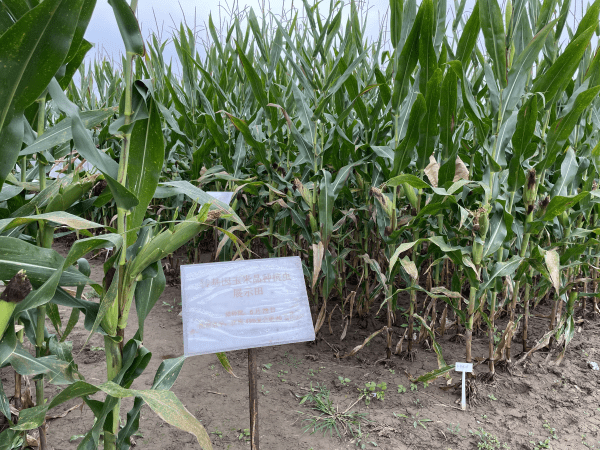
Hybrid Planting Area
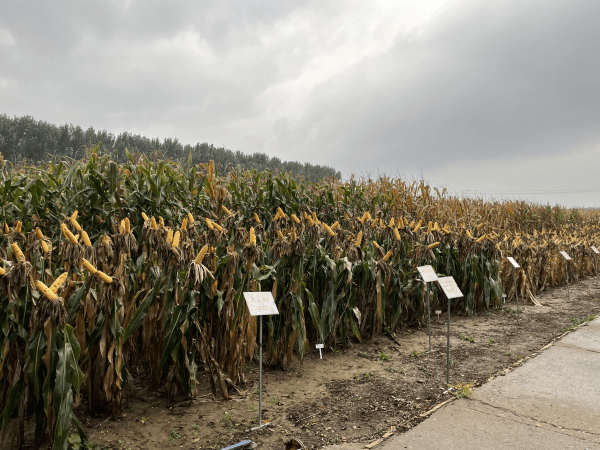
GMO Corn (20BTB017) Owned by SEED
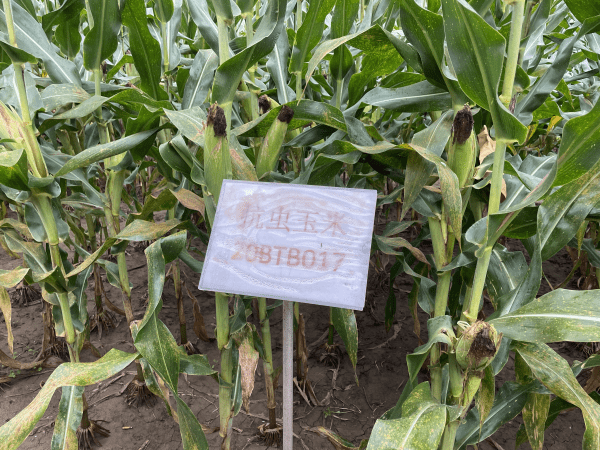
GMO Corn (20BTB016) Owned by SEED
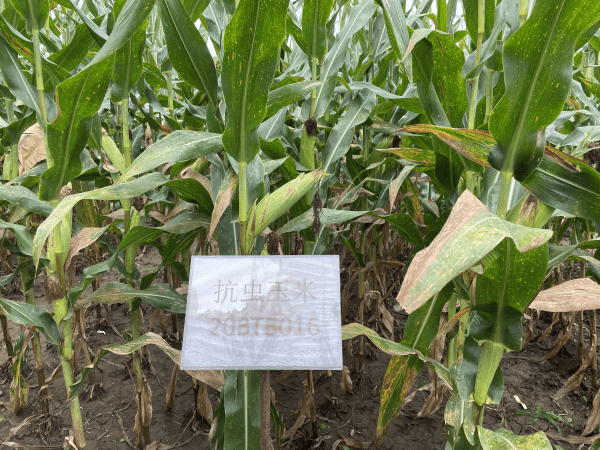
GMO Corn (958-HGK60) Owned by a Northwest A&F University
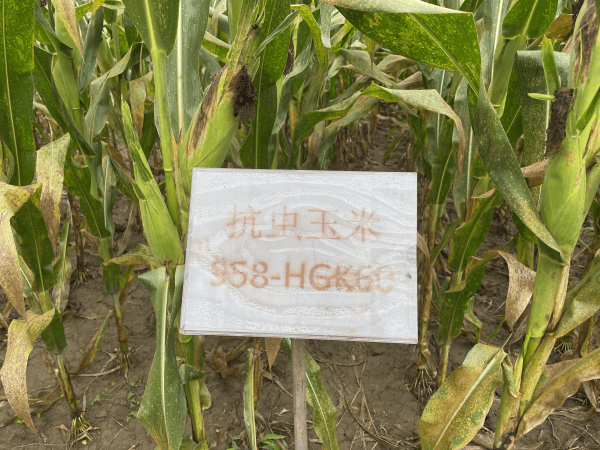
GMO Corn BBL2-2 Owned by BRI
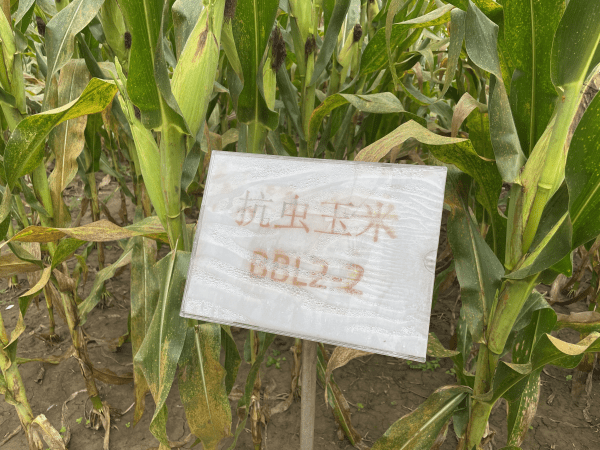
GMO Corn BFL 4-2 Owned by BRI
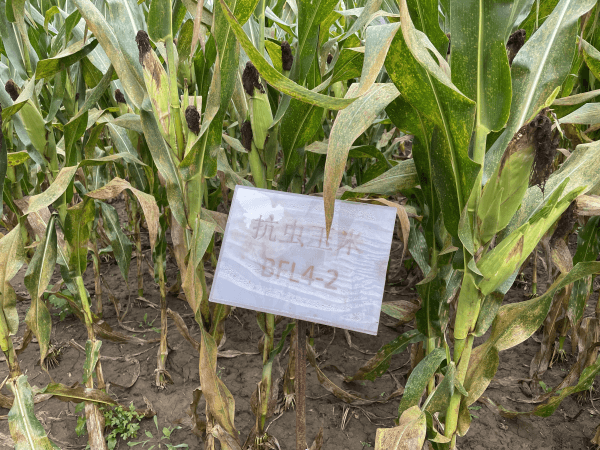
Two types of Insect-resistant GMO Corn
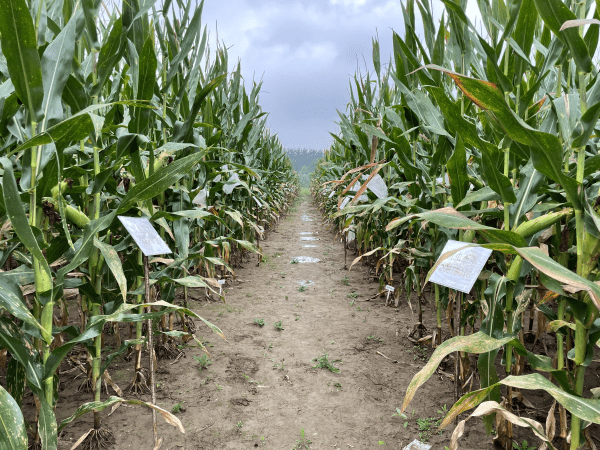
Laboratory Pics
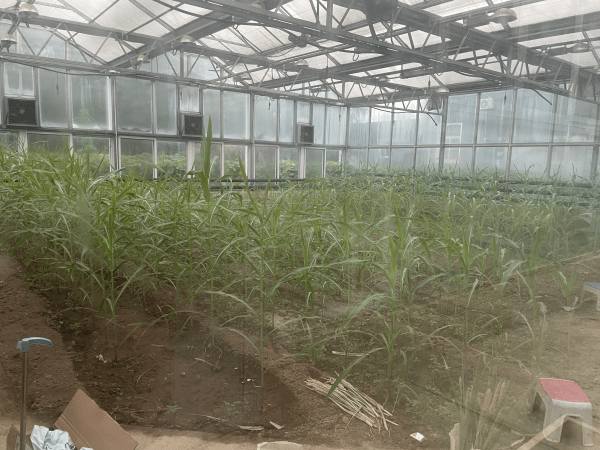
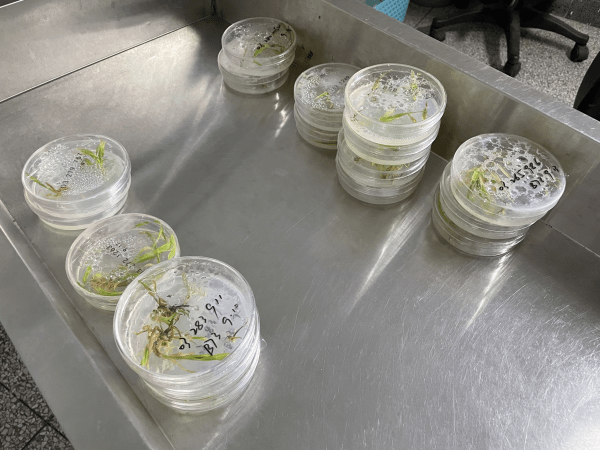
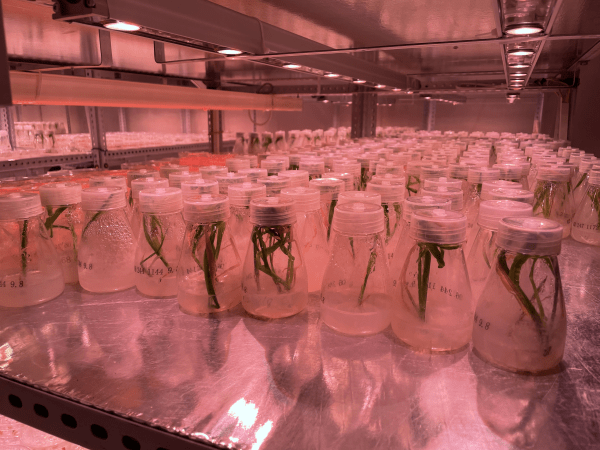
--
Questions Answered by Research Associate At SEED's Test Facility
General Questions
Question 1: How long have you been planting GMO seeds at this test site?
Answer: This test site was built up in 2001 and we started GMO research in 2003 and have planted seeds in the field since 2004.
Question 2 : How long does it take for crops to grow to maturity?
Answer: It will take about 6 months from the beginning to the end.
Question 3. How many different varieties of seeds have been planted?
Answer: So far, we have successfully bred more than 100 varieties of GMO corn seeds based on two major traits: insect-resistant and herbicide-tolerant. Some seeds were approved to move into the government’s GMO variety trail program.
Question 4: What has the yield been on SEED’s specific crops? For example, what percent of the crop has been unsatisfactory?
Answer: At this site, all corn you can see are GMO ones. GMO corn can have a yield of more than 15-20 percent over hybrid corn. So far, We mainly have been working on the research of insect-resistant and herbicide-tolerant genetically modified corn and drought-resistant GMO varieties. Any varieties of corn seeds that have poor and unsatisfactory performance will be eliminated.
Question 5: Is the testing period close to being completed? And if so, will there be more testing periods before GMO seeds will be ready for commercialization?
Answer: Actually, we have been doing the testing starting more than 10 years ago. In 2009, we actually produced 400 tons of GMO corn seeds
Note: (This occurred when SEED’s research partner, BRI, received its biosafety certificate. However, the production of seeds and inventory of GMO seeds had to be halted/destroyed when China reversed course on going GMO-positive as we discussed earlier in this research update).
--
GMO-Positive Status Questions
Question 6: To your knowledge have you received any certificates or approvals regarding GMO seeds tested at this facility? If not, do you anticipate the government will issue production licenses before the next planting season in early 2022?
Answer: So far, we have received the first bio-safety certificate in 2009 on a corn quality additive trait (waiting for re-stamp) and still waiting for the Bio-safety approval for two new traits: insect-resistant and herbicide-tolerant . Based on these two traits waiting for approval, we have already developed more than 100 varieties of GMO corn seeds. Although we are still waiting for the bio-safety approval, we are allowed by the government to breed more varieties of seeds. Actually these two steps (Bio-safety Approval and Breeding varieties of corn seeds) can be done at the same time. We believe the government will announce that very soon, because everyone is ready.
Question 7: Do you think you will be ready to plant and produce GMO crops at scale by the next planting season in early 2022?
Answer: We can start production at scale immediately.
Question 8: Do you know if the company has received any bio-safety certificates for any old or new GMO traits?
Answer: As far as we knew, there have been no new bio-safety certificates issued by government this year except for DBN and Ruifeng of Longping, who also received two Biosafety approvals in 2019.)
Question 9: Do you know if the government has renewed or re-stamped the corn trait GMO biosafety certificate in 2009?
Answer: Actually BRI has submitted a renewal application for the bio-safety certificate of 2009 because the certificate was under their name.
Question 10: In your opinion, why is it taking the government so long to issue all the necessary permits for companies like SEED to begin producing and selling GMO seeds?
Answer: GMO commercialization is not just a simple thing. It requires a very complicated systematic support from central government level to town-level governments, including different levels of government support policies and laws that depend on different situations.
Question 11: Do you think it's more likely China will commercialize GMO in 2022 or wait until 2023?
Answer: There is no way to wait until 2023. It is hard to say which day the government will announce the opening of GMO Commercialization this year. However, we can see that the central government is almost ready after they have issued so many new policies and new seed laws for the upcoming huge event and the whole industry is all ready. DBN already started Investor tour shows at their GMO planting area in September for the first time in history. Of course, we are all ready, too. The timing for the up-coming event could be very soon.
Question 12: Is your current infrastructure, including partnerships with other entities, ready to produce and market GMO seeds at scale?
Answer: IMMEDIATELY if the government announces to move forward.
Question 13: What type of testing procedures are being performed at this site to ensure the GMO seeds are effective in different environment constraints?
Answer: According to the rule of the MOA, we tested our GMO seeds at several different major national planting areas for a very long time, just like Beijing, Henan, Hainan.
Question 14: Are you growing any hybrid corn at this site? Can you comment on the performance of your hybrid seeds?
Answer: We bred a lot hybrid corn seeds here several years ago. Most of corns you can see here are GMO ones right now. Currently, most of hybrid corns are planted at more than 40 different national planting and testing sites in different provinces. Our hybird corn had a really fabulous and excellent performance after a natural disaster that occurred across several major agricultural crop planting provinces this year. The market was very impressed over Origin’s hybrid corn and which we hope will translate into significant orders for our hybrid seeds next year.
--
Government Test Facility
National planting area owned by the Chinese government to tests hybrid seeds
- Location - Zhoukou City, Henan Province
- Questions Answered by a SEED sales associate stationed at the facility
Government Testing Facility Picture
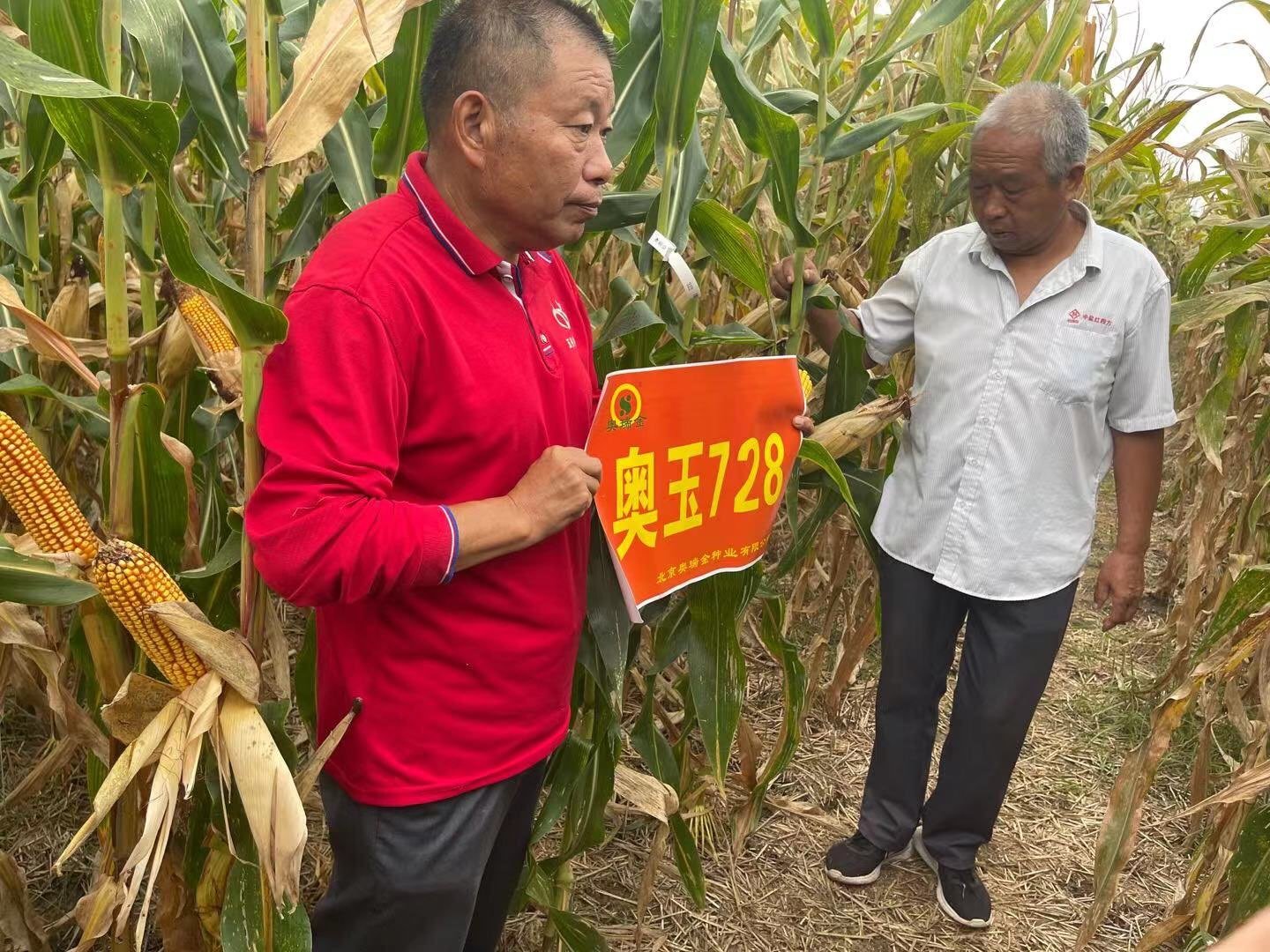
The above picture is one of SEED’s distributors showcasing one of the company’s hybrid corn crops, and below are two more pictures of SEED’s corn at the test site, here:
Hybrid Corn (ZH-2 57 728) Owned by SEED
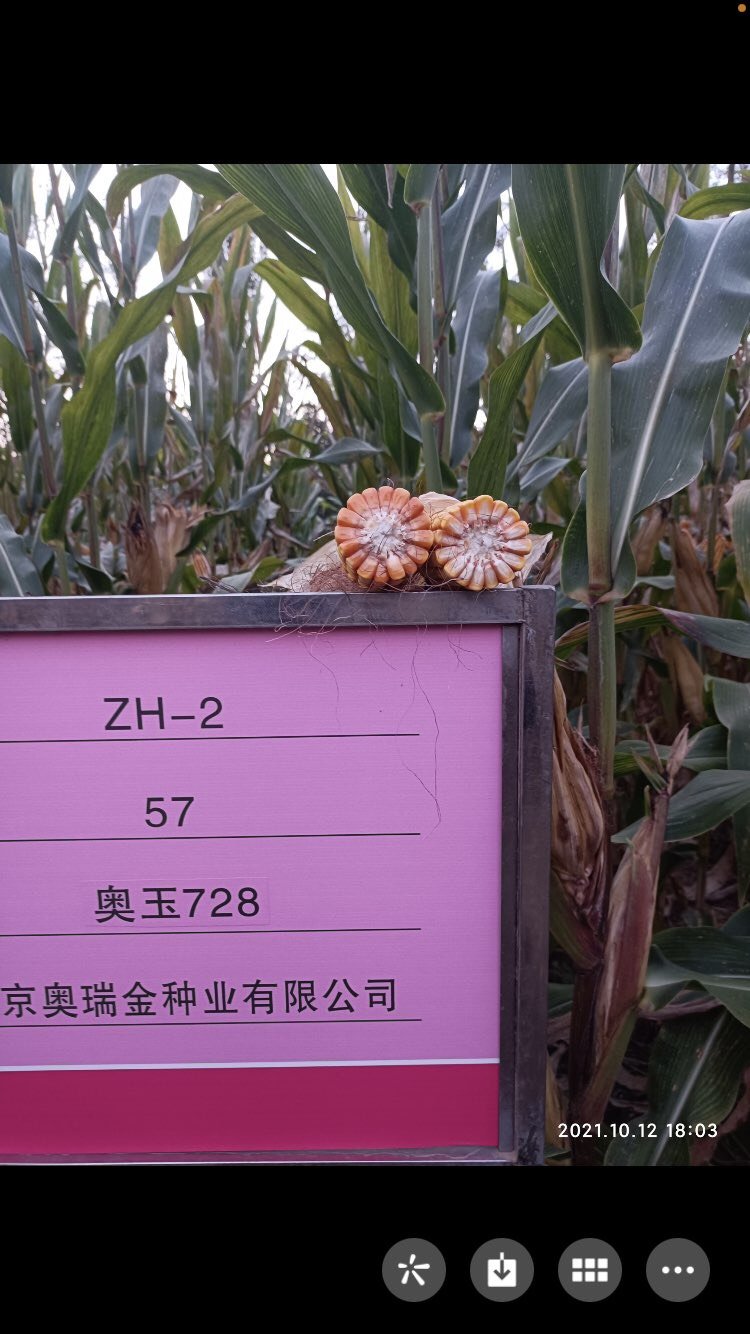
SEED Corn Product
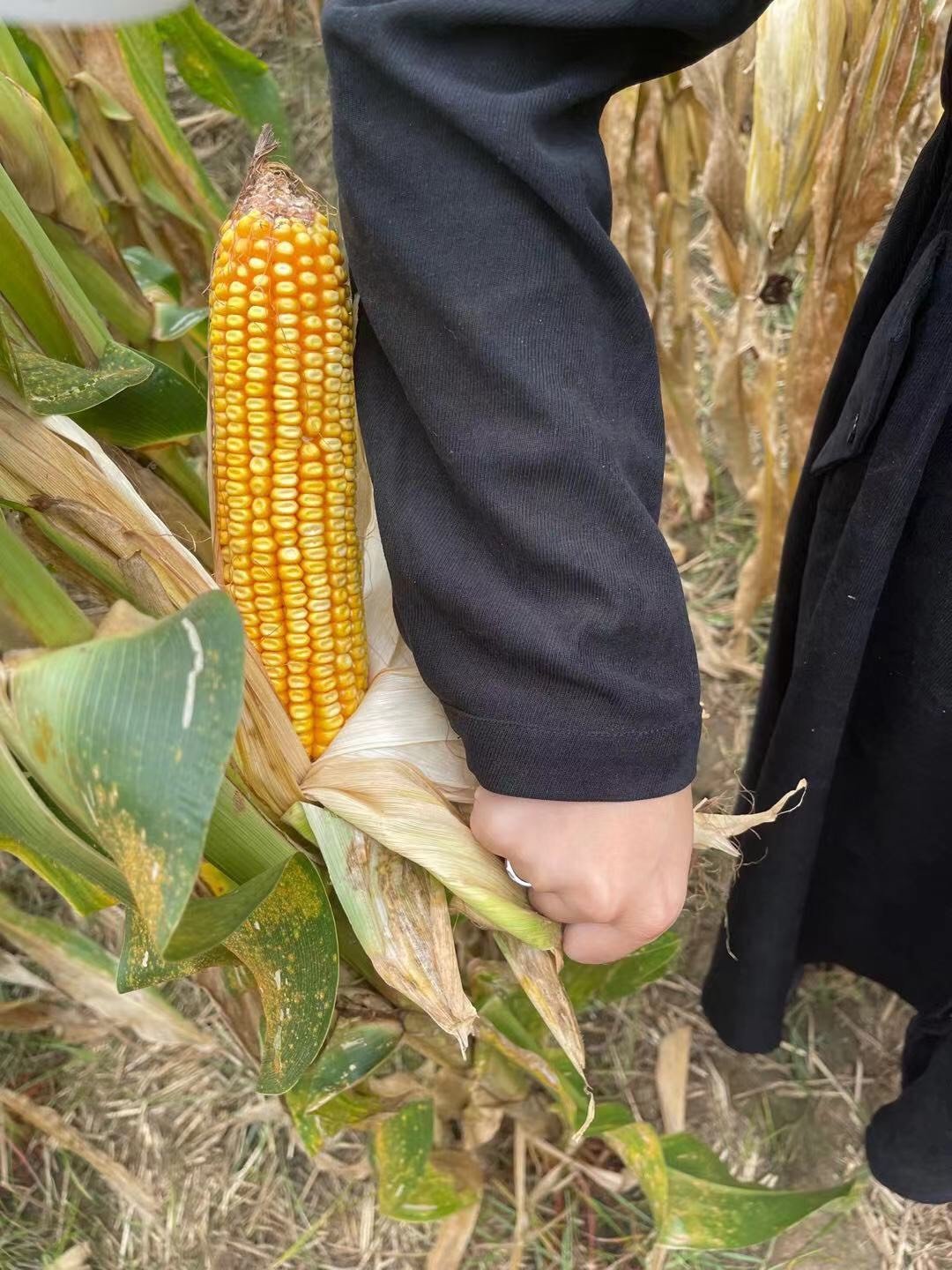
We can use these pictures to visually compare them with competitors' pictures taken at the test site to highlight the superior quality of SEED’s, a statement that was actually made by the distributor.
Competitor Pictures
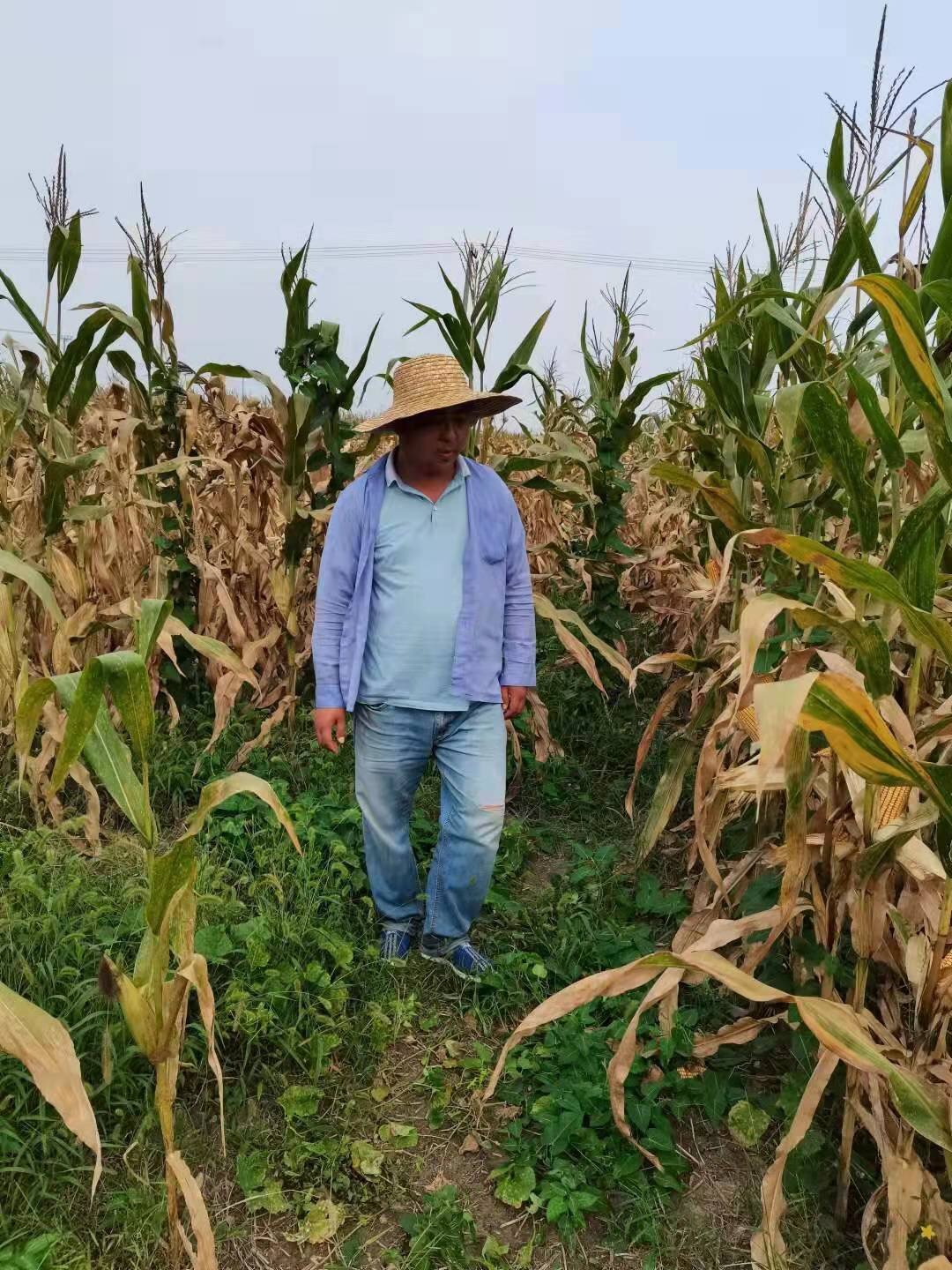


--
Questions Answered by Research Associate At SEED's Government Test Facility
Question 1: Is Zhoukou a national test field?
Answer: According to China's current policy, corn seeds must pass the national approval. The process is like this: For example, if you plan to sell in the Huanghuai area, you must pass the approval. The state has designated dozens of experimental sites in the Huanghuai area. If you want to pass the verification, you must conduct experiments in the experimental sites designated by the state. After the experiment, the data will be collected by the government and will then judge whether your variety is suitable for growing in my place based on these conditions. If it can be planted in this place, It can finally approve this variety. We are at Zhoukou, which is an experimental site of the country.
Question 2: Besides Origin, are there other companies that also have test fields here?
Answer: Yes, there are a large number of seed companies. If they want to sell in Henan, they must conduct experiments here. There may be forty or fifty spots in Henan, and you have to choose at least 20 spots to do the experiment, which is equivalent product testing from dozens of manufacturers in this experimental shop.
Question 4: In the experimental field in Zhoukou, you mainly plant hybrid varieties. Are GMO seeds also tested at this location?
Answer: Not yet. At present, the country's control of genetically modified varieties is still very strict. They can only be planted in other highly guarded designated test locations after they have been submitted for approval, and cameras must be installed to monitor various situations. Genetically modified breeding is still relatively strict in these areas.
Question 5: Does SEED grow genetically modified crops elsewhere?
Answer: There is a special experiment site at our experimental station in Beijing. This is approved by the state and you can grow it there (facility in first set of questions).
You should be able to check it out when you come to Beijing. This is the experimental site in Tongzhou.
Question 6: How many hybrid seeds are currently sold by Origin in the market? What is the market share?
Answer: Now our entire sales system is roughly divided into two parts, one is Origin's head office, and the other is Origin's subsidiary to authorize sales. We sell more than 10 million kilograms a year, and we should probably rank among the top ten in the country now, because China's seed sales, especially corn seed sales, are very fragmented, and Longping Hi-Tech actually has a market share of 3%. So the relative management of a large number of seed companies in China is still not so regulated, and the country is slowly regulating this area.
Question: How meaningful is Origin's current hybrid seed breeding. For example, how many have been approved by the state, and how many are still waiting for approval?
Answer: At present, there should be 30 or 40 varieties sold in the market. Because its market is oriented to the whole country, Huanghuai area is our largest market. We have markets in Shanghai, Northeast, Northwest, and Southwest of China. Therefore, there are a lot of varieties, and the number under reviewing now should be more than a dozen varieties. From the approval point of view, there should be at least hundreds of them.
Because after sales are approved, they are also eliminated while selling while researching and developing. There are currently 30 or 40 approved products for sale, but there are more than 10 that are still awaiting approval.
Question: There were weather disasters in so many places in China this year. Has Origin's sales been affected in any way?
A: It should be said that this year the entirety of China, especially the Huanghuai area, basically has very serious rust and light blight disease this year. Many fields are basically dry before they mature. It can be said that a large number of companies may have varieties that are affected, because different varieties have different resistances. In this area It is equivalent to saying that the ability to resist disease is different. The Origin varieties we are selling.
--
Seed Distributors
Distributor 1
Question 1: What is your opinion after visiting Origin’s hybrid corn test field in the rain this morning?
Answer: After checking these varieties, I found that there are several main characteristics:
- The first is good disease resistance;
- The second is all planting has an appropriate medium height;
- The third one is that low fruit position ;
Anyway, it is a relatively promising high-yielding variety.
Question 2: What (hybrid corn) varieties did your company mainly sell in Shenqiu in the past?
Answer: In the past, the main products were Lvyu 16, Zhongdan 122.
Question 3: After the observation today, will your company choose to sell Origin’s products in the next step?
Answer: We will sell this variety as our company's leading variety in the future.
Question 4: Do you have a clearly selected product today?
Answer: Several varieties with better performance have been selected today.
Question 5: What will the next purchase volume be?
Answer: This will be determined according to our sales situation and market demand, which is roughly about 10,000 mu of planting area. 1600 acres 30,0000 = 1
--
Distributor 2
Question 1: Where are you from?
Answer: I come from Dancheng County in Zhoukou District.
Question 2: How large is the current agricultural land in Dancheng?
Answer: The land used for agriculture is about 1.3 or 1.4 Million mu.
Question 3: Which company's hybrid corn varieties are your company currently selling in Dancheng County?
Answer: Now it is mainly Aoyu 311 from Origin.
Question 4: According to market feedback, this year, Origin’s varieties performed relatively well in terms of pest resistance and drought resistance. Many dealers also confirmed this in the process of observing the test field this morning. Will your company increase the purchase of Origin’s products in the next purchase?
Answer: That's for sure, this must be strengthened.
Question 5: Do you have a preliminary budget for the purchase of Origin’s products?
Answer: After we went to the test field today, we felt that the Aoyu 728 had excellent disease resistance and lodging resistance. In this strong wind and heavy rain, other companies’ varieties had more breakage, but this product was better. In addition, the weather this year is relatively abnormal and rust has exploded, but the disease resistance of this product is very good. The preliminary plan for next year is based on an area of 10,000 mu.
--
Appendix - Quick Facts
As standard with all of our bullish reports, we provide a quick facts table. Please understand that we are looking past the current numbers, since they are meaningless compared to what the company should be capable of generating if they begin to obtain production certificates for their GMO traits.
*As of 11/18/2021
|
Price per share (previous close)
|
$9.75
|
Revenue (TTM)
|
$2.59M
|
|
Market Cap
|
$55.45M
|
Gross Margin (TTM)
|
-34%
|
|
Cash
|
$4.3M
|
EBITDA Margin (FY2020)
|
-154%
|
|
LT Debt
|
$20.9M
|
EBITDA (FY2020)
|
-$11.89M
|
|
Current Portion of LT Debt
|
$0.0M
|
EPS (TTM)
|
-$2.75
|
|
Enterprise Value
|
$72.05M
|
EV/EBITDA
|
N/A
|
|
Book Value per share
|
-$1.96
|
P/E
|
N/A
|
|
Insider Ownership
|
14.6%
|
Full-time Employees
|
72
|
|
Shares Basic
|
5,567,680
|
Shares Diluted
|
5,567,680
|
|
Trading Venue
|
NASDAQ
|
Financial Year
|
30-Sept
|
|
P/S (TTM)
|
21.4x
|
EV/S (TTM)
|
27.8x
|
|
Current Ratio
|
0.7
|
Tangible BV per share
|
-$2.07
|
|
Description
|
Agricultural Biotech
|
CEO
|
Dr. Gengchen Han
|
|
Headquarters
|
Beijing, China
|
Website
|
https://originagritech.com/
|
|
Potential Catalyst
|
Approval of certificates
|
Risks
|
Chinese Govt.
|
--
Disclaimer
Please be advised that GeoInvesting™ is a research and publishing firm, of general and regular circulation, which falls within the publisher’s exemption to the definition of an “investment advisor” under Section 202(a)(11)(A) – (E) of the Securities Act (15 U.S.C. 77d(a)(6) (the “Securities Act”). GeoInvesting™ is not registered as an investment advisor under the Securities Act or under any state laws. None of our trading or investing information, including the Content, GeoInvesting™ Email, Executive Casts and/or content or communication (collectively, “Information”) provides individualized trading or investment advice and should not be construed as such. Accordingly, please do not attempt to contact GeoInvesting™, its members, partners, affiliates, employees, consultants and/or hedge funds managed by partners of GeoInvesting™ (collectively, the “Geoinvesting™ Parties”) to request personalized investment advice, which they cannot provide. The Information does not reflect the views or opinions of any other publication or newsletter.
We publish Information regarding certain stocks, options, futures, bonds, derivatives, commodities, currencies and/or other securities (collectively, “Securities”) that we believe may interest our Users. The Information is provided for information purposes only, and GeoInvesting™ is not engaged in rendering investment advice or providing investment-related recommendations, nor does GeoInvesting™ solicit the purchase of or sale of, or offer any, Securities featured by and/or through the GeoInvesting™ Offerings and nothing we do and no element of the GeoInvesting™ Offerings should be construed as such. Without limiting the foregoing, the Information is not intended to be construed as a recommendation to buy, hold or sell any specific Securities, or otherwise invest in any specific Securities. Trading in Securities involves risk and volatility. Past results are not necessarily indicative of future performance.
The Information represents an expression of our opinions, which we have based upon generally available information, field research, inferences and deductions through our due diligence and analytical processes. Due to the fact that opinions and market conditions change over time, opinions made available by and through the GeoInvesting™ Offerings may differ from time-to-time, and varying opinions may also be included in the GeoInvesting™ Offerings simultaneously. To the best of our ability and belief, all Information is accurate and reliable, and has been obtained from public sources that we believe to be accurate and reliable, and who are not insiders or connected persons of the applicable Securities covered or who may otherwise owe any fiduciary duty or duty of confidentiality to the issuer. However, such Information is presented on an “as is,” “as available” basis, without warranty of any kind, whether express or implied. GeoInvesting™ makes no representation, express or implied, as to the accuracy, timeliness or completeness of any such Information or with regard to the results to be obtained from its use. All expressions of opinion are subject to change without notice, and GeoInvesting™ does not undertake to update or supplement any of the Information.
The Information may include, or may be based upon, “Forward-Looking” statements as defined in the Securities Litigation Reform Act of 1995. Forward-Looking statements may convey our expectations or forecasts of future events, and you can identify such statements: (a) because they do not strictly relate to historical or current facts; (b) because they use such words such as “anticipate,” “estimate,” “expect(s),” “project,” “intend,” “plan,” “believe,” “may,” “will,” “should,” “anticipates” or the negative thereof or other similar terms; or (c) because of language used in discussions, broadcasts or trade ideas that involve risks and uncertainties, in connection with a description of potential earnings or financial performance. There exists a variety of risks/uncertainties that may cause actual results to differ from the Forward-Looking statements. We do not assume any obligation to update any Forward-Looking statements whether as a result of new information, future events or otherwise, and such statements are current only as of the date they are made.
You acknowledge and agree that use of GeoInvesting’s™ Information is at your own risk. In no event will GeoInvesting™ or any affiliated party be liable for any direct or indirect trading losses caused by any Information featured by and through the GeoInvesting™ Offerings. You agree to do your own research and due diligence before making any investment decision with respect to Securities featured by and through the GeoInvesting™ Offerings. You represent to GeoInvesting™ that you have sufficient investment sophistication to critically assess the Information. If you choose to engage in trading or investing that you do not fully understand, we may not advise you regarding the applicable trade or investment. We also may not directly discuss personal trading or investing ideas with you. The Information made available by and through the GeoInvesting™ Offerings is not a substitute for professional financial advice. You should always check with your professional financial, legal and tax advisors to be sure that any Securities, investments, advice, products and/or services featured by and through the GeoInvesting™ Offerings, as well as any associated risks, are appropriate for you.
You further agree that you will not distribute, share or otherwise communicate any Information to any third-party unless that party has agreed to be bound by the terms and conditions set forth in the Agreement including, without limitation, all disclaimers associated therewith. If you obtain Information as an agent for any third-party, you agree that you are binding that third-party to the terms and conditions set forth in the Agreement.
Unless otherwise noted and/or explicitly disclosed, you should assume that as of the publication date of the applicable Information, GeoInvesting™ (along with or by and through any Geoinvesting™ Party(ies)), together with its clients and/or investors, has an investment position in all Securities featured by and through the GeoInvesting™ Offerings, and therefore stands to realize significant gains in the event that the price of such Securities change in connection with the Information. We intend to continue transacting in the Securities featured by and through the GeoInvesting™ Offerings for an indefinite period, and we may be long, short or neutral at any time, regardless of any related Information that is published from time-to-time.